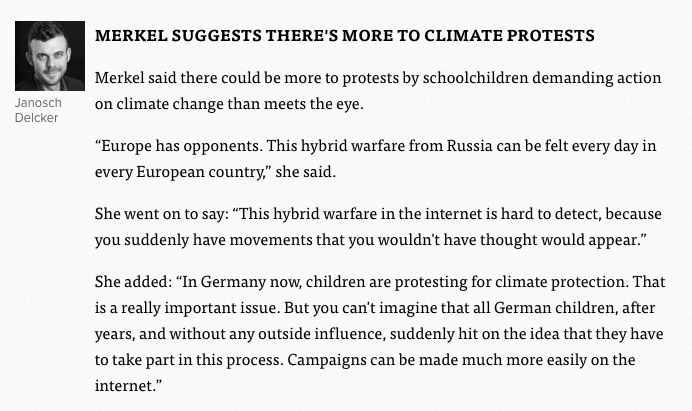THREAD: There’s lots of talks about artificial intelligence and ethics these days — how to come up with principles for the use of #AI, whether there should be binding laws regulating it or whether broader guidelines could be enough etc pp.
2/ I’d like to point you to an — overlooked, as often — academic paper that came out earlier this month. There’s lots of op-eds and papers written on the topic. No one has the time to read them all (and to be frank, many aren’t worth it.) This one’s different:
3/ The paper’s titled “Constitutional democracy and technology in the age of artificial intelligence” and it’s written by @PaulNemitz , a high-ranking European Commission official who was one of the architects behind Europe’s sweeping privacy law, the GDPR papers.ssrn.com/sol3/papers.cf…
4/ His main point: AI, paired with other tech (Internet of Things etc,) will soon be at the heart of government work, so Europe must make sure rules are in place to prevent such new technologies from undermining core democratic values (human rights, democracy, the rule of law).
5/ Why you should care: Nemitz sits on the “Data Ethics Commission” of the German government. He knows how the European Commission works. And his argument is a powerful rebuke to industry arguments that loosely defined ethical principles will be enough to guide AI R&D.
6/ Nemitz — who stresses that the article “is expressing his own opinion and not necessarily that of the European Commission” — writes that lawmakers must decide ASAP “which of the challenges of AI can be safely ... left to ethics, and which ... need to be addressed by rules?” 

7/ In other words: It’s high-time to set out what parts of AI need to be regulated via old-fashioned laws.
8/ Why the urgency? A disproportionate amount of knowledge about cutting-edge AI applications is currently concentrated in the hands of a few tech giants, sometimes referred to as the “Frightful five,” Google, Facebook, Microsoft, Apple and Amazon, he stresses.
9/ Nemitz doesn’t beat around the bush: “While their basic AI research may in part be publicly accessible, the much more resource intensive work on systems integration and AI applications for commercial use is taking place in a black box.”
10/ This makes such work “both a threat to democracy and to functioning markets,” he asserts. At the same time, he doesn’t buy into the variety of initiatives — most prominently perhaps the @PartnershipAI — by which private companies are drawing up their own AI guidelines.
11/ (Just today — somewhat related — news broke that Google is “issuing an open call to organizations around the world to submit their ideas for how they could use AI to help address societal challenges.” ai.google/social-good/im… )
12/ “In a move of genius, the corporations interested have started to finance multiple initiatives to work on ethics of AI, thus, while pretending best intentions, effectively delaying the debate and work on law for AI,” Nemitz writes. 



13/ He adds: “These powerful Internet technology corporations … have already demonstrated that they cannot be trusted to pursue public interest on a grand scale without the hard hand of the law.”
14/ There’s a good precedent for the current situation, Nemitz says: GDPR. “All arguments which are now being presented against legislation for AI have been presented ... from 2012 until 2016, in the four years of negotiations of the GDPR.” 

15/ But “none of these arguments convinced legislators – and rightly so,” he writes. Want to dig deeper? Here’s the paper (skip pages 1-15 if you’re short on time) poseidon01.ssrn.com/delivery.php?I…
• • •
Missing some Tweet in this thread? You can try to
force a refresh






